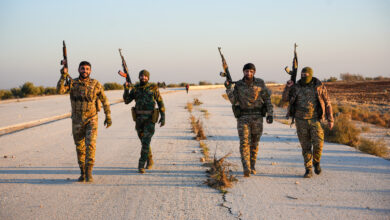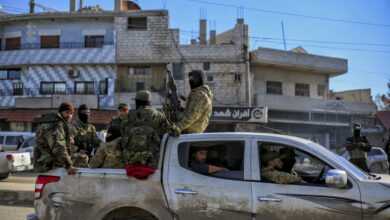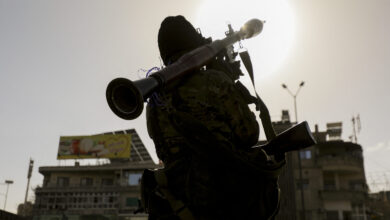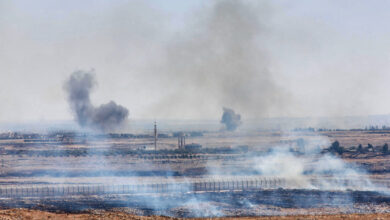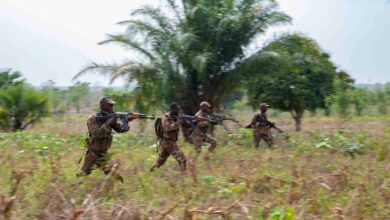Major offensives against final ISIS strongholds underway on both sides of the Syria-Iraq border
T2 pumping station capture paves way for Syrian regime push on Al Bukamal, as Iraqi forces move on Al Qaim
Syrian regime forces captured an oil pumping station in Deir Ezzor province on Thursday, paving the way for a push to take Islamic State-held Al Bukamal, while across the border, Coalition-backed Iraqi forces launched an offensive to take Qaim and Rawa, the last ISIS urban strongholds in Iraq.
Launched in September, the operation to capture the isolated but strategically important T2 was finally successful on Thursday, Reuters reported Hezbollah media as saying. The oil pumping station which lies around 70 km (43 miles) from Al Bukamal is part of a network of stations that pump crude oil from Syria and Iraq to oil-tanker terminals on Syria’s Mediterranean coast.
Pro-government media said the operation to capture Al Bukamal will be led from T2 by Tiger Forces commander Major General Suheil Al-Hassan.
The border town of Al Bukamal sits in the middle Euphrates river valley and is the last major urban stronghold held by ISIS in Syria. Both the U.S.-led Coalition and the Syrian government have said that the town is an objective in their ongoing campaigns, potentially leading to a race between competing forces.
The town lies on the west bank of the Euphrates where the Syrian government and its allies including Russia have rapidly advanced in recent days, including taking Mayadin, an important ISIS stronghold.
The river acts as a demarkation line – the Coalition-backed Syrian Democratic Forces are battling ISIS on the eastern side, and have themselves made rapid advances since SDF forces were redeployed after the capture of Raqqa from ISIS. In recent days, the SDF have captured most of Syria’s largest oil and gas fields, with some saying the advances were so rapid because deals were made with ISIS for their handover.
Iraq launches simultaneous offensive
Meanwhile, Iraqi forces launched an offensive to capture Al Qaim and Rawa, the last two urban centers held by ISIS in the country.
“The heroic legions are advancing into the last den of terrorism in Iraq to liberate Al-Qaim, Rawa and the surrounding villages and hamlets,” Iraqi Prime Minister Haider al-Abadi said on Facebook. “The people of ISIS have no choice but to die or surrender.”
Regional commander General Qassem al-Mohammedi told AFP that the army – supported by the federal police, the elite Counter-Terrorism Service and the paramilitary Hashd al-Shaabi (Popular Mobilization Units) – was advancing on four fronts.
In a statement, the Coalition said that it estimated 1,500 ISIS fighters were in the vicinity of Qaim.
#ISF advancing on last #ISIS stronghold in Iraq. @CJTFOIR supports w/ training, equipment, advice, intel & precision strikes to #defeatDaesh pic.twitter.com/90UtqIxzVw
— OIR Spokesperson (@OIRSpox) October 26, 2017
Iraqi Kurdistan border posts contested
As the Iraqi offensive began, the Kurdistan Region Security Council reported that Peshmerga forces were attacked by Iraqi military and Hashd al-Shaabi on multiple fronts. Other reports said that Iraqi forces were also been pushing toward the Fishkhabur border crossing.
Some – including former Deputy Prime Minister of Iraq Hoshyar Zebari – have suggested the offensive on Qaim is merely a cover-up for Baghdad’s real goal of taking the important Fishkhabur area, which borders Syria and Turkey. The area contains Iraq’s main oil export pipeline and a border crossing important for both the northern Syria autonomous administration and for Coalition supply lines. Unlike disputed areas like Kirkuk, which recently saw clashes between Iraqi and KRG forces, Fishkhabur is within Kurdistan Region territory.



